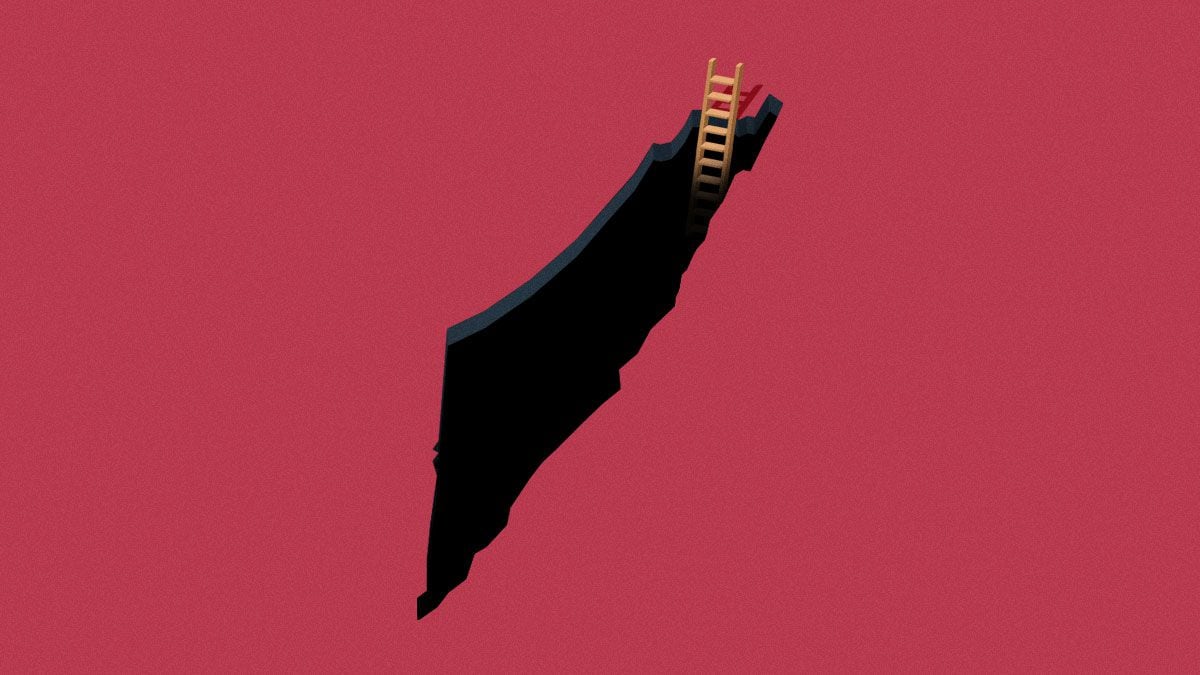The multiple operation launched by Hamas against Israel last Saturday, one day after the anniversary of the Yom Kippur War (1973), has disturbing similarities with that conflict. Bold and unexpected, both attacks took Israel by surprise and dealt a mortal blow to the Israeli idea of invincibility. It remains to be seen whether, as in 1973, the Hamas attack will cause an earthquake in Israeli politics and in the country's relationship with the Palestinians.
In the 1973 war, Egypt and Syria surprised Israel and penetrated its territory. In the early days of the conflict, the situation was so dire that Defense Minister Moshe Dayan recommended the use of nuclear weapons. The Agranat commission, which was later tasked with investigating the war, coined the term conceptziyya to refer to the arrogance of the intelligence services. Israel's military intelligence apparatus was convinced that the country's overwhelming firepower would deter an Arab attack. Specifically, the concept held that Egypt would not attack until it had sufficient air power to hit targets deep inside Israeli territory and neutralize its Air Force.
Today these organizations have clung to the conceptthat overwhelming Israeli power was enough to deter the Palestinian Hamas militia from starting a new war against the Jewish state. Their political masters, led by Prime Minister Benjamin Netanyahu, concluded that periodic outbreaks of Palestinian violence were a manageable nuisance and imagined that Palestinians would accept an endless occupation.
The Hamas operation demonstrates the fallacy of these ideas. There is no doubt that Israel cannot afford to continue to have an entity on its border that repeatedly calls for its destruction and abducts its civilians.
Following the publication in 1974 of the preliminary report of the Agranat commission, Prime Minister Golda Meir and Minister Dayan resigned. Meir stepped aside, but Dayan criticized those who called for his resignation, because it was not in the commission's recommendations.
Netanyahu is certain to do the same as Dayan. But there is also no doubt that his forty-year political career faces an embarrassing outcome. Although his uncompromising rhetoric won him supporters inside and outside Israel, it was always far from reality. The operation carried out by Hamas under its responsibility has ipso facto turned it into a paper tiger. He promised that his policies would keep the Palestinians in check, and ended up seeing them launch the worst attack in Israel's history. He assured that economic aid packages would appease them and found that Palestinian attachment to their land was stronger than the pocketbook. Netanyahu's strategy never went beyond giving free rein to the military in the Palestinian territories.
And it's something he proved a long time ago. In his first 11 years in power, he rejected the pressure of the Democratic governments in the United States (during the presidency of Barack Obama), and assured that the conflict would find a solution under the tutelage of a Republican president. But during the administration of Republican Donald Trump (2017-2021), Netanyahu appropriated US concessions (such as moving the US embassy to Jerusalem) without offering the Palestinians any tangible benefits.
Netanyahu's defenestration will take time. That of his subordinates will occur in a matter of weeks when the violence subsides. The Agranat commission only recommended the dismissal of a few officers, almost all from the intelligence sector. But in this war, the examination of responsibilities will penetrate deeper into the army and extend to the upper echelons of the Israeli internal security service.
Hamas may be held to similar accountability. The Israeli intelligence apparatus often talks about destroying "the terrorist infrastructure." The attack will give you a chance to do so.
A full-scale Israeli ground invasion is certain, and a long-term occupation is likely. The Hamas leadership will move to underground bunkers, but it is doubtful that it will get a safe haven.
Although Hamas and other Islamist organizations are set within the framework of Muslim history, perhaps a look at the New World is more sobering. In 1996, the Peruvian revolutionary movement Tupac Amaru took hundreds of hostages at the Japanese ambassador's residence in Lima. The spectacular attack attracted the world's attention; But then, a military operation freed the hostages and dealt the organization a mortal blow from which it never recovered.
The international community will give Israel ample leeway to do the same to Hamas. The usual protests over civilian casualties will be silenced, as during Israel's war against Hezbollah in 2006. But Western governments have a more effective tool at their disposal: pressuring Qatar and Turkey to expel Hamas officials, close their offices and prevent them from raising funds.
The bigger question is whether the attack will close a chapter in Israel's history. The result of the 1973 war (along with the revelation in 1977 that the wife of Meir's successor had an illegal offshore bank account) was the end of 29 years of Labour governments in the country.
Today Israel's trumpets cry out for vengeance. When they shut up, introspection will come. Israelis will question the concept that they can enjoy the benefits of a Western nation-state while also getting used to the suffering their neighbors seek to inflict on them.
But the Israeli left is unlikely to be reborn or the peace process renewed. Since the 2000 Palestinian rejection of President Bill Clinton's Israeli peace plan at the Camp David talks, the left has been mired in apathy. Labor has sunk from the heights of power to be one of the smallest factions in the Israeli Knesset.
In 1973, the revelation that Israel was not impregnable put the country on a path of peace with Egypt. The greatest tragedy of this war will be the inability to do the same to the Palestinians.
Barak Barfi was a research fellow at the New America Foundation and a visiting fellow at the Brookings Institution.
Translation by Esteban Flamini.
Copyright: Project Syndicate, 2023. www.project-syndicate.org
Subscribe to continue reading
Read without limits
Read more
I'm already a subscriber

